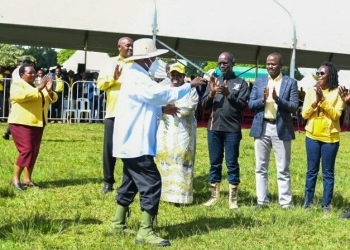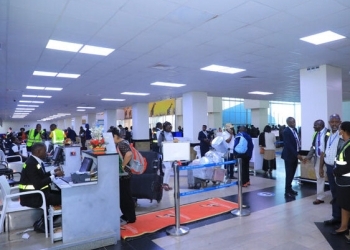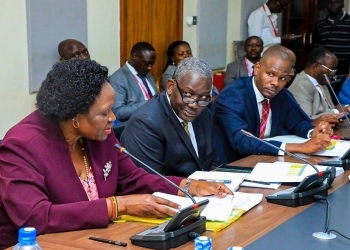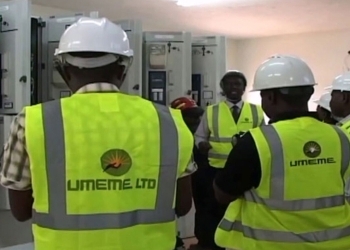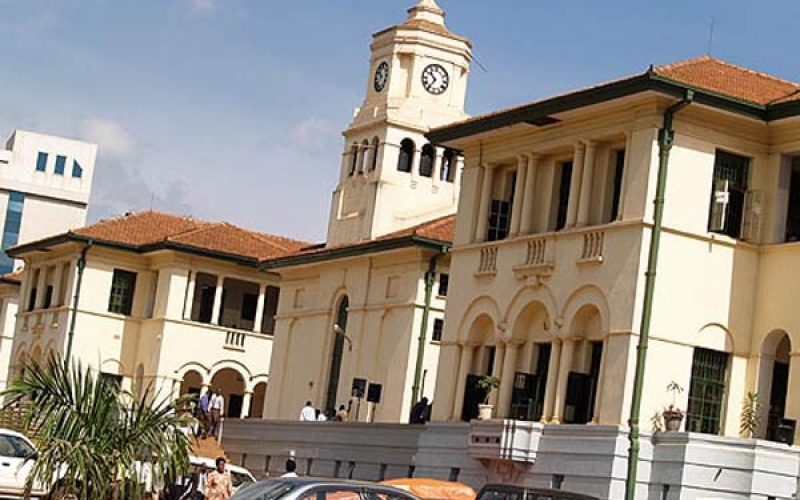
The Court of Appeal has dismissed an appeal by the government seeking to overturn a High Court decision ordering it to pay 50 Billion Shillings to a real estate company for canceling its land title.
In a majority judgment written by Justice Christopher Gasharibake, the court upheld the decision of High Court Judge Boniface Wamala finding that the government had to compensate Henley Property Developers Ltd for the loss it had made after the Registrar of land canceled its land title.
Court documents indicate that Henley Property Developers went to Court seeking compensation from the government after the Land Registrar canceled their land title after discovering that the land it had bought from Nantume Filomero Nakalema and Nabunjo Manjeri Kiwanuka, belonged to the Sugar Corporation of Uganda Limited-SCOUL.
The land company had in October 2011 expressed interest in buying land in Mukono District registered as East Buganda Block 171 Plot 6 at Namasaga, measuring 123.83 hectares.
Nantume Filomero Kiwanuka assured them that she was the owner of that land, as an administrator of the Estate of the late Kiwanuka Samuel Kaliginya, who owned the land prior to his death. The company carried out several searches at the Mukono District Land office and was given search reports that confirmed that indeed Nantume was the owner of the land.
Court documents show that on the basis of the search reports, Henley Property Developers in November of the same year completed the transaction by paying 6.097 Billion Shillings and the land was subsequently transferred in its name. However, five years later, Henley Property Developers received notification from the Commissioner of Land Registration of her intention to cancel the certificate of title on grounds that it had been issued in error.
The Commissioner said that upon conducting a routine inspection of the register, it had been discovered that the land was part of a bigger piece of land covered in a certificate of title issued earlier, namely, Buganda, Mengo, Kyagwe Freehold Register Volume 64 Folio 1B known as Kasenso Estate, measuring 882.39 acres, belonging SCOUL. The Commissioner in September 2016, canceled the title which forced the company to run to court seeking redress.
The High Court agreed that indeed the Commissioner of Land Registration had failed to do her job of ensuring that the land must have one title of registration and hence caused financial loss to the company. The judge ordered the government to compensate the company 50 Billion Shillings, which was the market value of the land then. The judge also ordered that the government pays 15 percent interest on the said money from the time of the judgment until full payment.
The Commissioner said that upon conducting a routine inspection of the register, it had been discovered that the land was part of a bigger piece of land covered in a certificate of title issued earlier, namely, Buganda, Mengo, Kyagwe Freehold Register Volume 64 Folio 1B known as Kasenso Estate, measuring 882.39 acres, belonging SCOUL. The Commissioner in September 2016, canceled the title which forced the company to run to court seeking redress.
The Attorney General also denied liability and averred that Henley Property Developers ought to have sought a refund of the money from the vendors Nantume and Nabunjo. However, in the ruling, the court unanimously ruled that it is the responsibility of the Land Registrar to keep a clean record which was based on the company paying for the land.
“I also agree that the lands registrar guarantees the accuracy of the particulars contained on the register. The register is conclusive evidence of ownership and thus, there is no need to search behind or beyond the certificate of Title to ensure proven ownership of the land…Accordingly, once a person is given such assurance by the custodian of the Land Register, as was the case herein, should such information turn out to be false, a party who has relied upon such information to their detriment has a cause of action against the defendant irrespective of whether the action or omission of the Registrar was negligent or simply erroneous,” the court observed.
The judge further noted that according to the Registration of Titles Act, the production of a certificate of title in the names of the registered owner was sufficient proof of ownership of the land in question unless the case involved fraud. “There was nothing warranting the respondent to sue the vendors in the circumstances. The vendors committed no wrong since the relevant title was issued by the land registrar. I agree with the findings of the lower Court to the effect that the Respondent was convinced that the vendors had neither committed fraud nor were aware of any defect in the title; the Respondent had carried out due diligence and was satisfied the vendors had a clean title; even land office was convinced the vendors were the registered proprietor of the suit land; the vendors and Respondent had nothing to do with the existence of an earlier Freehold Title,” Gasharibake’s ruling reads in part.
Consequently, the court ordered that the decision awarding 50 Billion Shillings for loss of business and an interest of 15 percent was reasonable and should be upheld. “I have considered the evidence of valuation of the suit land conducted at various periods…In my view, considering the other valuation exercises that gave a higher value of the suit land, the award of 50 Billion Shillings was reasonable…It is also clear that the suit land was in a lucrative industrial belt which led to its appreciating in value. Therefore, the Respondent deserved adequate compensation to reflect this fact and I find that the sum awarded by the trial Court was justified,” the Gasharibake’s ruling joined by Justices Eva Luswata and Elizabeth Musoke reads.



